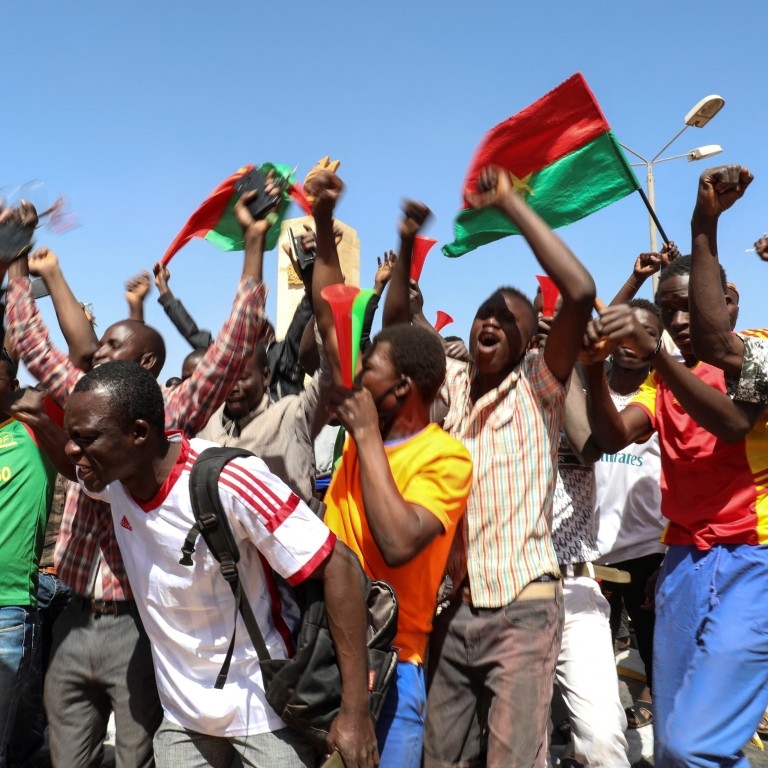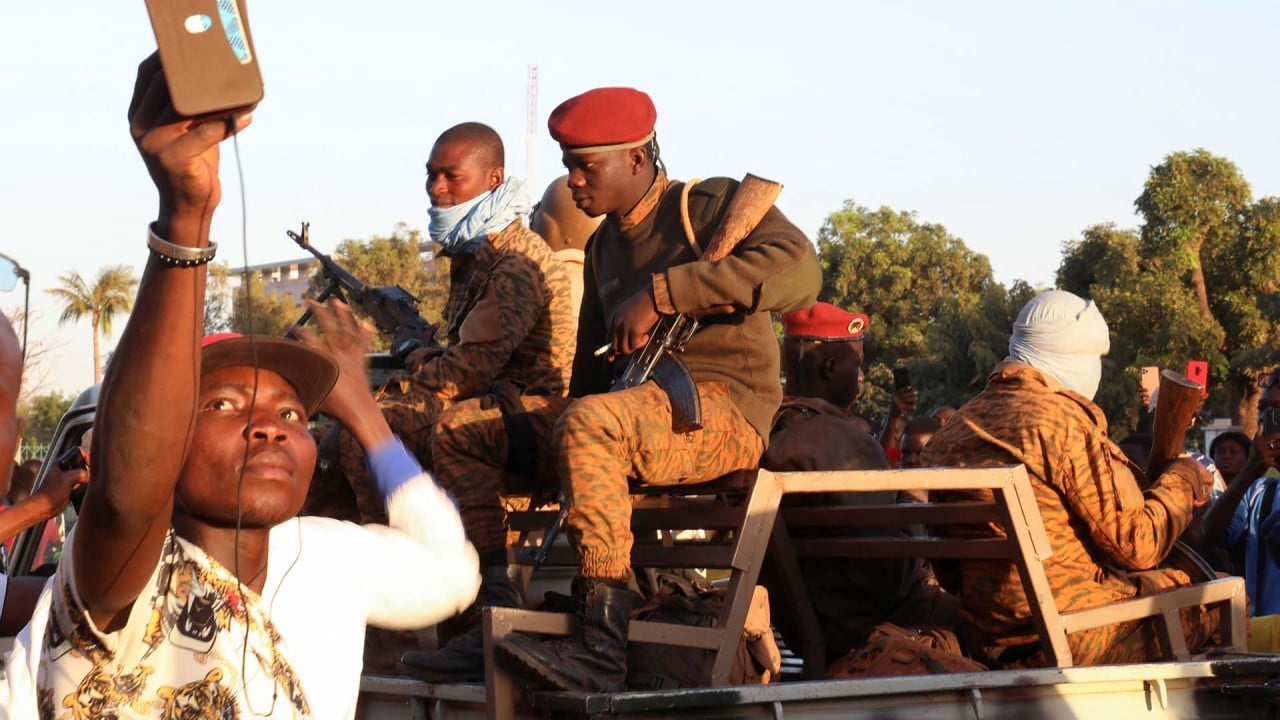
China and Russia seek bigger security role in post-coup Burkina Faso
- Beijing’s response to latest West African military takeover has been muted but its links with the country look set to continue, observers say
- Chinese investment includes an optical fibre communications network and security surveillance system, while Russian lobbyists are offering help to junta
Instead of the forthright condemnation that followed the overthrow of Guinean president Alpha Conde, Beijing called “on all parties in Burkina Faso to bear in mind the fundamental interests of the nation and people, and peacefully resolve differences through dialogue”.
Chinese foreign ministry spokesman Zhao Lijian said on Tuesday last week that China would “spare no effort to protect the safety of Chinese citizens in the country”. The Chinese embassy in Ouagadougou issued a security alert warning its citizens to take precautions.
The counsellor for political affairs in Burkina Faso Wang Wenzhang told CCTV last week that the about 500 Chinese citizens in the West African country were not currently affected, but China was keeping a close watch on their safety.
Beijing’s response to the Burkina Faso coup, which ousted Roch Marc Christian Kabore, was a return to China’s decades-old policy of non-interference in the internal affairs of other countries.
In comparison, its statement on the Guinean coup last year said bluntly, “China opposes coup attempts to seize power and calls for the immediate release of President Alpha Conde”.
Observers noted the response was likely driven by economic interests. Chinese companies have vast mining interests in Guinea, especially in iron ore.
Beijing is a player in the Guinean economy, buying most of its bauxite, and its companies also have a stake in the country’s iron ore reserves. Its investments include the world’s largest iron ore project, the Simandou mine.
In Burkina Faso, China is only starting to make inroads after Ouagadougou switched allegiance from Taipei to Beijing in 2018 following an on-off relationship going back decades.
Burkina Faso was the only African country to resume diplomatic relations with Taipei in 1994, after previously acknowledging Beijing in 1973. Only eSwatini, previously Swaziland, now recognises Taipei in Africa.
Jason Li, a research associate at the Stimson Centre’s East Asia Programme, said China’s response was indicative of its relative lack of investment in Burkina Faso compared to other West African states.
The lower economic stakes made China less forceful in stating its preferences, he said, but also “represents the complicated diplomatic history Burkina Faso holds in the Chinese context”.
“This back-and-forth introduces a new element of Chinese foreign policy thinking in this country – and therefore its messaging to domestic political developments.”
Why China has ‘drifted away’ from its African allies on military coups
The coup in Burkina Faso is said to be a result of growing anger at the government over its failure to rein in attacks by militants linked to al-Qaeda and Islamic State, which killed thousands and displaced millions.
Burkina Faso is the fourth West African nation to be hit by coups in less than two years, with two military takeovers in Mali – in August 2020 and again in May last year – and Chad in April, as well as Guinea.
China was known for non-interference foreign policy. And then came Guinea
Lina Benabdallah, a specialist in China-Africa relations at Wake Forest University in North Carolina, said prolonged instability could see Chinese investments move away from Burkina Faso.
With Li Jian finishing up his term as ambassador to Burkina Faso, his successor would be likely to hit the ground running, she said, to figure out the situation and make the right assessments on what the coup meant for Chinese investments, interests and nationals.
According to Folashade Soule, a senior research associate at the University of Oxford, the coup is unlikely to directly affect Chinese interests in Burkina Faso, as one of the most recent countries to re-establish diplomatic relations with Beijing.
She said that since the switch to Beijing in 2018, Burkina Faso’s relationship with China had taken off again, and resulted in contributions to the African country’s strategic priorities, especially in agriculture, health, infrastructure and humanitarian aid.
China touts digital silk road in Africa
Ouagadougou has also benefited from Chinese military training, with 72 scholarships for Burkinabe students and officials at military schools in China.
Soule said Chinese investment in the country includes a smart city initiative, “Smart Burkina”, funded via an Exim Bank loan of US$94 million and developed by Huawei Technologies and China International Telecommunication Construction Corporation.
The project includes installation of a 650km (400-mile) optical fibre network and security surveillance cameras in the capital and Bobo Dioulasso, Burkina Faso’s economic centre and second-most populous city.
Soule said one consequence of the coup could be further engagement with China – and Russia, whose lobbyists have already offered their services to the junta to address the country’s security threats.
With its projects facing risks in Africa, can Beijing still stay neutral?
“In a context where the country is facing growing terrorist threats ... the military junta might reach out further to countries like Russia and China,” she said.
“This might become a case where new strategic partners like China and Russia will play a bigger role as security providers in the region.”
China was already bankrolling an effort by the G5 Sahel Joint Force – comprising Burkina Faso, Chad, Mali, Mauritania and Niger – to fight violent extremism through a partnership with the African Union, Soule pointed out.


